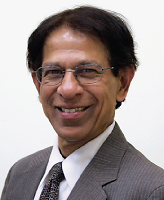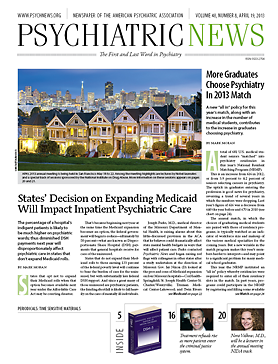There is a tendency to divide psychiatric interventions into two distinct groups: pharmacological/biological and psychosocial/behavioral. Such a classification implies that pharmaceuticals work through biologic mechanisms, while psychosocial ones act through mental/behavioral processes. This notion is simplistic and erroneous. Many studies have shown that at least a part of the effect of medications is probably placebo effect by virtue of a patient’s expectations that a drug prescribed by an expert physician must be effective.
At the same time, a growing number of investigations have demonstrated biological changes, not just in function but also in the structure of the brain, produced by psychotherapeutic and social interventions. For example, cognition enhancement therapy has been shown to increase gray matter in specific regions of the brain on MRIs in people with schizophrenia. Similar research has recently expanded to integrative medicine—formerly called complementary and alternative medicine. Interventions such as meditation, Tai Chi, and yoga, which once were considered unscientific, have been found to be useful in some people with mental illness and to have significant effects on brain-based as well as blood-based biomarkers.
I invited Helen Lavretsky, M.D., M.S., who has been doing interesting and important research in this field, to discuss the psychological and biological effects of mindful exercises and meditation in people with mental illness. Dr. Lavretsky is a professor of psychiatry and director of the late-life mood, stress, and wellness research program at the UCLA Semel Insitute for Neuroscience and Human Behavior at the UCLA David Geffen School of Medicine.
Helen Lavretsky, M.D., M.S.
Patients with mental disorders increasingly turn to integrative medicine for relief of symptoms of anxiety, mood, insomnia, impaired cognition, and perceived stress. Given widespread use of integrative, or mind-body, medicine among our patients, there is a need for greater awareness of and familiarity with the applications and biopsychosocial outcomes of commonly used mind-body interventions.
Mind-body medicine encompasses a number of techniques collectively known as mindful exercise (for example, yoga, Qi Gong, and Tai Chi), or meditation. Mindful physical exercise has become an increasingly used approach for improving psychological well-being and is defined as “physical exercise executed with a profound inwardly directed contemplative focus.”
In general, mindful physical exercise contains the following key elements: (1) a noncompetitive, nonjudgmental meditative component, (2) mental focus on muscular movement and proprioceptive awareness combined with a low to moderate level of muscular activity, (3) centered breathing, (4) a focus on anatomic alignment (that is, spine, trunk, and pelvis) and proper physical form, and (5) energy-centric awareness of individual flow of intrinsic body energy, otherwise known as prana, life force, qi, or Kundalini. Mindful exercise seems to provide an immediate source of relaxation and mental quiescence. Scientific evidence has shown that medical conditions such as hypertension, cardiovascular disease, insulin resistance, depression, and anxiety disorders respond favorably to mindful exercises.
There is a growing database on physiological effects of mindful exercise and meditation. Tai Chi and Qi Gong have been shown to promote relaxation and decrease sympathetic output and to benefit anxiety, depression, hypertension, and immunity-mediated diseases. Tai Chi and Qi Gong have been reported to improve immune function and vaccine response. These practices also have been found to increase blood levels of endorphins and baroreflex sensitivity and to reduce levels of inflammatory markers (C-reactive protein), adrenocorticotrophic hormone (ACTH), and cortisol, implicating the hypothalamic-pituitary-adrenal axis as a mediator of stress and anxiety reduction. Electroencephalopathy studies of participants undergoing Tai Chi and Qi Gong exercise have shown increased frontal EEG alpha, beta, and theta wave activity, suggesting increased relaxation and attentiveness. These changes were not seen in comparison subjects who practiced aerobic exercise.
Our recent study of brief daily yogic meditation (Kirtan Kriya) for stressed family dementia caregivers found that meditation resulted in lower levels of depressive symptoms and improvements in mental health and cognitive functioning. Participants in the yogic meditation group showed a 43 percent improvement in telomerase activity after 12 minutes of daily practice for eight weeks, compared with 3.7 percent improvement in relaxation-music control participants. This suggests that brief daily meditation practices can benefit stress-induced cellular aging. Kirtan Kriya reversed the pattern of increased NF-κB-related transcription of pro-inflammatory cytokines and decreased IRF1-related transcription of innate antiviral response genes in distressed dementia caregivers. This reinforces the relationship between stress reduction and beneficial immune response. In the same study, nine caregivers received brain FDG-PET scans at baseline and postintervention. Significant group differences over time were found in various patterns of regional cerebral metabolism, suggesting brain-fitness effects different from those of passive relaxation.
Studies of meditation also show decreased sympathetic nervous activity and increased parasympathetic activity associated with decreased heart rate and blood pressure, decreased respiratory rate, and reduced oxygen metabolism. Functional neuroimaging studies have corroborated these subjective experiences by demonstrating the up-regulation in brain regions of internalized attention and emotion processing with meditation. In a systematic review of neurobiological and clinical features of mindfulness meditation in the August 2012 Psychological Medicine, Chiesa and Serretti provided evidence on the neurobiological changes related to mindfulness meditation practice in psychiatric disorders. Meditation practices that focus on concentration of an object or mantra seem to elicit the activation of fronto-parietal networks of internalized attention, while meditation techniques that focus on breathing may elicit additional activation of paralimbic regions of insula and anterior cingulate, and meditation techniques that focus on emotions may elicit fronto-limbic activation. Future studies can help disentangle the brain-activation patterns related to different meditation traditions.
Given the noninvasive nature of mindful exercise and meditation, these exercises may be recommended to patients with psychiatric disorders that have been studied in randomized, controlled trials. Significant evidence supports the assertion that Tai Chi, Qi Gong, yoga, and meditation can improve health-related quality of life and mental health. However, ethical considerations should be taken into account when recommending spiritual interventions to respect individual patients’ religious or other personal beliefs in choosing mind-body interventions. ■


